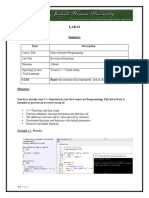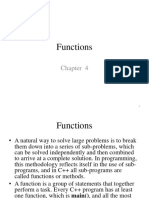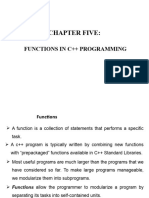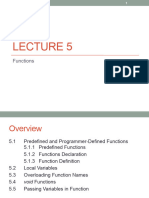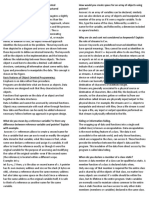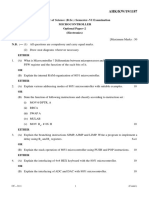0% found this document useful (0 votes)
25 views72 pages06 Functions
Chapter 6 covers functions in programming, including defining, calling, and using functions to modularize code. It discusses various aspects such as passing arguments by value and reference, function overloading, and the importance of function prototypes. The chapter emphasizes the role of functions in creating reusable and organized code.
Uploaded by
jedny456Copyright
© © All Rights Reserved
We take content rights seriously. If you suspect this is your content, claim it here.
Available Formats
Download as PDF, TXT or read online on Scribd
0% found this document useful (0 votes)
25 views72 pages06 Functions
Chapter 6 covers functions in programming, including defining, calling, and using functions to modularize code. It discusses various aspects such as passing arguments by value and reference, function overloading, and the importance of function prototypes. The chapter emphasizes the role of functions in creating reusable and organized code.
Uploaded by
jedny456Copyright
© © All Rights Reserved
We take content rights seriously. If you suspect this is your content, claim it here.
Available Formats
Download as PDF, TXT or read online on Scribd
/ 72



















